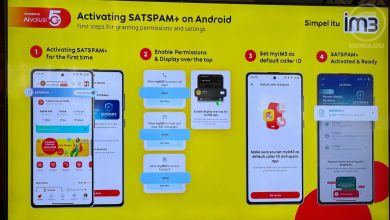What’s Next for Malaysia’s Internet Kill Switch After the DNS Blocking Backlash?

The Malaysian government’s recent attempt to enforce DNS blocking ignited a storm of controversy. The initiative aimed to block access to websites engaged in illegal activities like online gambling, pornography, and scams. At first glance, it seemed like a reasonable approach to curb the growing threat of cybercrime. However, things quickly spiralled out of control as the public began to view the measure as a potential tool for censorship. Concerns about freedom of speech and government overreach spread rapidly, turning what could have been a straightforward regulatory measure into a flashpoint for wider debates around digital rights.
DNS blocking works by intercepting a user’s request for a website and rerouting it through a government-controlled server. The idea is simple: Block access to websites involved in illegal activities by preventing users from reaching them. Between January 2022 and August 2024, the Malaysian Communications and Multimedia Commission (MCMC) blocked over 10,000 websites using this approach. Despite the clear intent to protect the public from harmful content, the public saw the initiative as a slippery slope. Many feared that such a system could be extended to stifle political speech, restrict access to sensitive information, or even shut down entire swathes of the Internet.
One of the main concerns raised during the debate over Malaysia’s DNS blocking initiative was the potential impact on internet access and user choice. Blocking popular DNS services like Google DNS or Cloudflare could limit users’ ability to access information and resources, reduce competition among DNS providers, and potentially give the government more control over internet traffic.
Critics were quick to point out the similarities between Malaysia’s DNS blocking system and China’s infamous “Great Firewall.” Fears over the potential for censorship grew stronger when legitimate websites were accidentally blocked, further damaging public trust. The backlash became so intense that the government eventually scrapped the DNS blocking plan, leaving it with the task of finding a new, more effective way to combat cyber threats.
What Is Malaysia’s Internet Kill Switch?
The Malaysian government believes that in order to take their cybersecurity journey to the next step, they need to implement the internet kill switch. But with the DNS blocking fiasco fresh in everyone’s minds, the government is looking to introduce a more potent tool in the fight against cybercrime. The proposed legislation, which is expected to be tabled in Parliament this month, would give authorities the power to cut off access to harmful websites or even shut down parts of the Internet during a cyber emergency. But what exactly does this kill switch entail, and how is it different from the failed DNS blocking system?
While DNS blocking focuses on redirecting web traffic, the internet kill switch is a rapid-response mechanism designed to shut down malicious websites or services immediately. It could be used in situations where online platforms are spreading disinformation, facilitating scams, or distributing illegal content, such as child exploitation materials. Proponents argue that this capability would allow the government to respond to cyber threats in real time, preventing further harm. Unlike DNS blocking, which often operates on a website-by-website basis, the kill switch offers a far broader and faster method for mitigating large-scale cyber threats.
Learning From Other Countries
Malaysia (if they proceed with the Kill Switch plan) will not be the first country to explore such an initiative and examining how other nations have implemented this measure can provide valuable insights. Countries like Egypt, India, Iran, Turkey, Russia, and Ethiopia have already enacted similar mechanisms with varying degrees of success.
In India, for instance, internet shutdowns have become an increasingly common tactic, especially in regions like Kashmir, where politically motivated blackouts are used to prevent the spread of information during protests. While the government justifies these shutdowns as a necessary tool for maintaining public order, they have drawn widespread criticism for infringing on free speech and disrupting daily life. The tactic has proven divisive, sparking debates about the balance between security and civil liberties.
Similarly, Iran’s kill switch has been used to control civil unrest. Following nationwide protests, the government shut down the Internet to prevent the organisation of demonstrations and restrict the flow of information. This approach has been widely condemned by human rights organisations for its role in curbing political expression and access to information.
These examples show that while the kill switch can be an effective tool for controlling the spread of disinformation or organising cyber attacks, it carries significant risks. Malaysia would need to tread carefully, ensuring that the kill switch does not become a tool for political repression or censorship, as seen in other countries.
Why Push for the Kill Switch?
Malaysia, like many other countries, has seen a surge in cyber threats over the last decade. Online scams, cyberbullying, and the distribution of illegal content are on the rise, and existing cybersecurity measures have struggled to keep pace. The internet kill switch is seen by some as a necessary next step in tackling these online dangers.
Supporters argue that this tool would enable authorities to act swiftly in the face of growing threats. The speed at which phishing attacks, scams, and disinformation campaigns spread makes it difficult for current systems to contain them. A kill switch could help stop these threats before they cause significant damage.
Cybersecurity expert Anne Cutler from Keeper Security points out that the internet kill switch could substantially reduce the impact of persistent online threats like fraud and cyberbullying. However, she also emphasises that the kill switch alone will not be enough. She believes that it must be used in conjunction with a broader cybersecurity strategy, including public education, stronger password security, and the widespread use of Multi-Factor Authentication (MFA). These additional measures would help ensure that individuals and businesses are better equipped to protect themselves from online risks.

The Challenge of Building Public Trust
The biggest obstacle facing the internet kill switch is the issue of trust. The DNS blocking debacle severely eroded public confidence in the government’s ability to regulate the Internet without overstepping its bounds. Many Malaysians now fear that the kill switch could be used as a tool for censorship or political gain. This scepticism needs to be addressed head-on if the legislation is to have any chance of success.
Restoring public trust will require the government to be as transparent as possible. Clear guidelines must be established, outlining the specific circumstances under which the kill switch can be activated. The public needs to understand exactly what qualifies as a cyber emergency and why the kill switch would be necessary in such situations. Without this clarity, fears about the government using the kill switch to silence dissent or limit access to politically sensitive information will only grow.
Kelvin Lim, Senior Director at Synopsys Software Integrity, also warns of the potential for the kill switch to be misused by cybercriminals. Malicious actors could exploit the system by triggering Denial-of-Service (DoS) attacks, forcing the government to shut down access unnecessarily. He argues that the kill switch must come with strict oversight and security protocols to prevent such scenarios from occurring. This could involve working closely with cybersecurity experts to develop safeguards that ensure the system is only used when absolutely necessary.
Independent Oversight and Accountability
One way to address concerns about misuse is to create an independent body responsible for overseeing the kill switch’s activation. This would help ensure that the government isn’t using the kill switch for inappropriate reasons. Having an impartial third party monitor the system would add a layer of accountability, helping to build public confidence that the kill switch is being used responsibly.
Regular reports on the use of the kill switch could also help reinforce trust. The public has a right to know when the switch has been activated, why it was deemed necessary, and what results it achieved. Transparency in these areas would go a long way toward preventing fears of censorship from taking root.
Protecting Freedom of Expression
The potential impact of the kill switch on freedom of expression remains a significant concern. Malaysia has a history of regulating political speech, and there is understandable anxiety that the kill switch could become a convenient way to silence opposition voices. Addressing these concerns will be vital to the success of the initiative.
To protect freedom of speech, the kill switch should be reserved for situations where there is a clear and present danger to public safety or national security. Every decision to activate the switch must be subject to judicial review, ensuring that it isn’t used arbitrarily. This safeguard would help prevent the kill switch from becoming a tool for censorship while still allowing it to serve its intended purpose: Protecting Malaysians from cybercrime.
A Comprehensive Approach to Cybersecurity
The internet kill switch is just one part of a larger cybersecurity puzzle. In order to effectively protect its civilians, the Malaysian government will need to adopt a more comprehensive approach. Public awareness campaigns will be critical in teaching people how to protect themselves from online threats. Many common cybercrimes, such as phishing scams and data breaches, can be avoided if individuals are better informed about the risks.
Collaborating with tech companies and Internet Service Providers (ISPs) will also be important. By working together, the government and private sector can develop sophisticated threat detection systems that automatically block harmful content before it reaches users. This would reduce the need for drastic measures like the kill switch, allowing for a more nuanced approach to dealing with online threats.
The Fine Line Between Security and Freedom
The road ahead for Malaysia’s internet kill switch is fraught with challenges. The government will need to carefully consider the potential trade-offs between enhancing cybersecurity and safeguarding freedom of expression. The failure of the DNS blocking system serves as a cautionary tale about the dangers of heavy-handed regulation. To avoid a repeat of that controversy, the government should adopt a more transparent and accountable approach, actively seeking public input throughout the development and implementation process.
While the goal of protecting citizens from online threats is important, it is essential to explore alternative strategies that minimise the risk of unintended consequences. These might include targeted measures against specific threats, increased collaboration with internet service providers, or investments in cybersecurity education and awareness. By carefully considering these options and prioritising transparency and accountability, Malaysia can develop a more effective and balanced approach to internet security that respects the rights and freedoms of its citizens.






